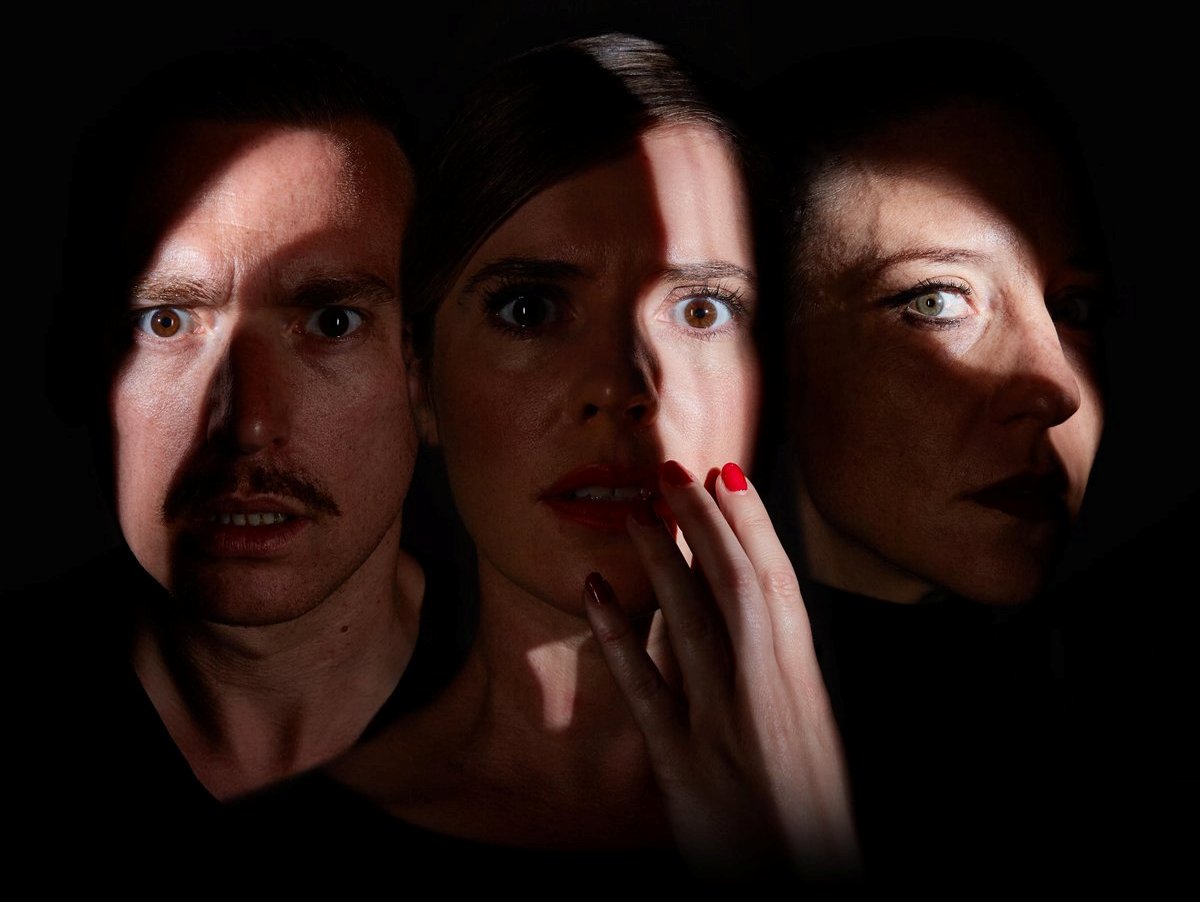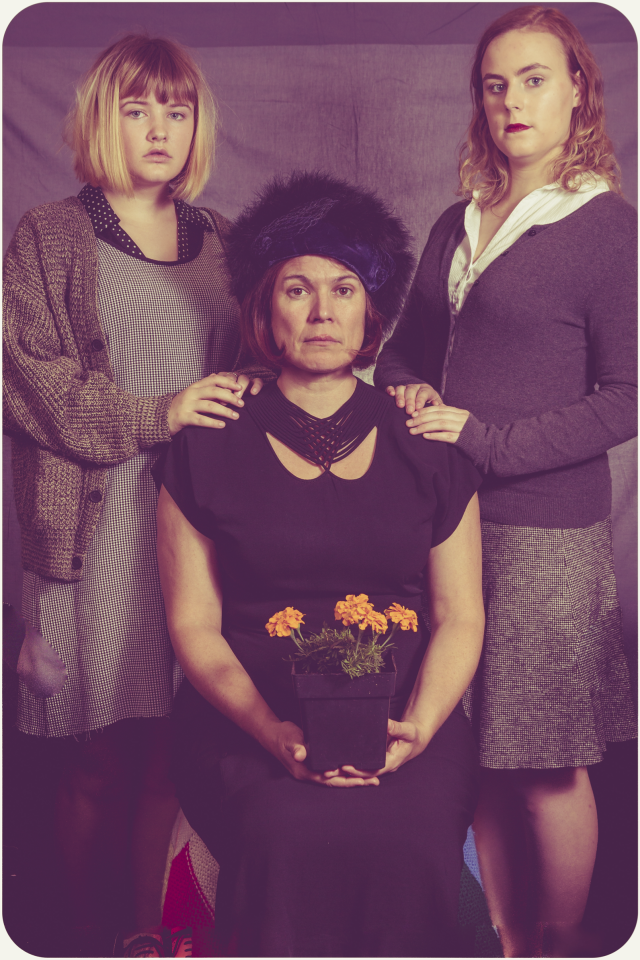2 MORE MASTERS of the Fringe
Posted on August 21, 2017 By Colin MacLean Entertainment, Front Slider, Theatre
 No Exit
No Exit
By Bright Young Things, Venue 12 (Varscona Theatre)
A man enters a room. It’s set in Stygian darkness … a couple of sticks of furniture … some pillars, one with a statue on it. It’s hot … a little too hot. No pictures. No mirrors. The lights never turn off. A man turns to a bemused bellboy who ushered him in.
“And this is the way it looks?” he asks.
“This is the way it looks!” the fellow answers brightly.
The man is in hell. No, it’s not the everlasting hellfire of Dante, but hell as imagined by French philosopher Jean-Paul Sartre. His 1944 play No Exit is regarded as the greatest example of his existential ideology. It’s being produced at the 2017 Fringe by the Bright Young Things company, who have brought us such memorable Fringe shows as Deep Blue Sea and We Were Dancing.
The Man, Cradeau (played by Ron Pederson), will soon be joined by two companions. Inez (Belinda Cornish) stands for a moment, framed in the doorway. Severe – hair pulled back. Straight as an arrow. Icy and intelligent. She’s followed by Estelle (Louise Lambert), bubbly, vain, flirtatious.
The bellboy (George Szilagyi) leaves and closes the door. He will never return.
The characters of the three were formed while they were alive but now the possibility of change or choice is over. As the metaphorical heat is turned up, their self-inflicted pain becomes constant as they realize they are doomed to tear away at each other for eternity. As they talk, the power shifts from one to another but the third is always there to prevent anything of human understanding from happening.
“Each of us is the torturer of the other,” moans Cradeau.
Sartre’s vision has hell as other people.
At first the dapper Cradeau seems to be keeping it all together, but as infinite time wears away we find he is a liar, a collaborator and a coward. Estelle is all surface and capable of any crime – including the death of her own child. Inez is a lesbian and a self-described sadist. Estelle changes from coquette into uncaring devil in a heartbeat. The calculating Inez unleashes unbridled hatred in a jagged lightening flash. It doesn’t take long for Cradeau’s outward control to melt away as he stands in precarious balance between the two women.
It’s all brilliantly directed by Kevin Sutley with a sharp eye to the shifting emotional currents and with great feeling for the existential doom his characters are facing.
Powerful stuff.
5 out of 5
 The Effect Of Gamma Rays On Man In The Moon Marigolds
The Effect Of Gamma Rays On Man In The Moon Marigolds
By Plain Jane Theatre, Venue 3 (Walterdale Theatre)
As Masters of the Fringe you would be hard put to come up with two names with more wallop than director Amy DeFelice and director-actress Kate Ryan.
It’s interesting to note that Ryan, performing the central role of Beatrice in this Pulitzer Prize-winning 1971 drama, was featured in a local production of the play opposite her mother, Maralyn Ryan, and her sister, Bridget, (and directed by her father, the late Tim Ryan) in 1986.
Thirty-one years later, she takes the role her mother played – Beatrice the embittered, aging but unvanquished matriarch of a broken but resilient family. Matilda (Sadie Bowling) is a visionary and the vulnerable 16-year-old is trying to find the inner strength to stay afloat in the midst of a monstrously dysfunctional family. She has a sister, Ruth (Emma Wilmott), who is battling the onslaught of adolescence and the growing realization that her perpetually angry mom is not like other school parents. The family takes in a boarder – a senile old woman known as Nanny (Helen Klemm), whom Beatrice continually mistreats. There is also a pet rabbit that is a source of friction between mom and kids.
Matilda is a dreamer and full of wonder at the universe but mom keeps pulling her back, belittling her science school project by calling her floral project, “radioactive flowers.” When Matilda wins the competition, mom is proud in her own curmudgeonly way and sets out to see her child receive her honour – but is crushed by her other daughter who reminds her that she has been called “Betty the loon” all her life.
The company is uniformly talented but in Amy DeFelice’s production, the family dynamic remains very muted. It’s hard to imagine that the very real problems the three face together wouldn’t demand a more demonstrative relationship. Even Ryan, as the gorgon of a mother, is content to muffle her reactions and doesn’t reach the impassioned heights the role seems to demand.
The play is much less depressing than it sounds. The three band together as a family, sharing a love and determination to survive despite the grim world in which they live. They are the embodiment of the metaphor of the title – delicate flowers that when exposed to radiation often die – but sometimes turn into beautiful mutations. Ryan is very effective at projecting the difficult, near impossible task, of showing that mom is more than the monster she seems to be.
4 out of 5











